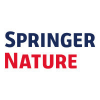Fully Funded Phd Scholarship in Maximising The - County, United Kingdom - Springer Nature
Description
Fully Funded PhD Scholarship in Maximising the Flexibility of Energy Consumption in Ireland:
- Employer
- University of Galway (NUI Galway)
- Location
- Galway (County), Connacht (IE)
- Salary
- €25,000 per annum
- Closing date
- 7 Jun 2024
- Discipline
Job Type
PhD Position
Employment - Hours
Full time
Duration
Fixed term
Qualification
Undergraduate
Sector
Academia- You need to sign in or create an account to a job.
- Job Details
- Company
Job Details:
University of Galway
Located in the vibrant cultural city of Galway in the west of Ireland, the University of Galway has a distinguished reputation for teaching and research excellence
Detailed Project Description:
Living allowance (Stipend):
The project is funded by the Sustainable Energy Authority of Ireland (SEAI). The PhD stipend is €25,000 per annum and is tenable for 4 years. The stipend is usually a tax-exempt scholarship award.
University fees:
The funding will also cover University fees up to a maximum of €5,750 per annum and is also tenable for 4 years.
Start date:
September 2024
***
Contact Name: Dr. Jason Harold
Application Deadline:
Friday 7th June 2024 at 17:00 (Irish time 24hr format)
Primary Supervisor name:
Dr. Jason Harold
Company:
NUI Galway is recognized as a research-led University that addresses issues of global economic and societal importance. Our research strategy focuses on developing clusters of internationally recognised expertise in selected priority areas.
We have developed meaningful and strategic research alliances with economic, social and cultural partners in areas of regional and national importance.
This strategy has resulted in the creation of research clusters in themes that are academically challenging, economically viable and regionally and nationally relevant.
We continue to develop our research priorities within the national and international context in addition to supporting emerging and cross cutting priority area development.
Our priority research areas build upon our key strengths and include:- Biomedical Science and Engineering
- Informatics, Data Analytics, Physical and Computational Sciences
- Environment, Marine and Energy
- Applied Social Sciences and Public Policy
- Humanities in Context including Digital Humanities
Our vibrant and dynamic community attracts researcher leaders, academics, entrepreneurs and students of the highest calibre who thrive in our research focused environment.
This is embodied though our research commitment, which seeks to:- Contribute to Knowledge
- Create partnerships with Industry
- Educate Future Leaders
- Shape the Direction of Public Policy
- Enable Regional and Cultural Advancement
Biomedical Science and Engineering
Developing innovative research programmes that promote the understanding and treatment of today's major diseases.
The core objective of this priority is to serve the needs of patients through research, to provide a real and measurable return on investment, to enhance regional and national enterprise development and to contribute to society through education and scientific outreach.
Researchers focus on some of the major medical challenges that face the world today including cardiovascular disease, cancer, orthopaedic disorders and neurodegenerative diseases.
Informatics, Data Analytics, Physical and Computational Sciences Science
NUI Galway's researchers in informatics use their world-wide network of partners to take part in global standardisation efforts and to improve the way people and businesses communicate and interact.
Research also addresses the problems presented by vast data sets flowing from imaging activities that need significant computing power to reduce, analyse and visualize and further research looks at modelling and simulation, which are integral to almost all physical and biological sciences.
Environment, Marine and Energy
This research area covers environmental change and modelling, atmospheric studies, biodiversity and bioinformatics, marine science and law, and sustainable energy.
Research efforts towards enhanced energy efficiencies and conservation methods, renewable energy sources and new advanced environmental technologies, help address the dilemma between balanced economic growth and environmental impact.
Applied Social Sciences and Public Policy
Research programmes examine economic innovation, social change, social inclusion, balanced development and health.
The Whitaker Institute applies a multiperspective research approach to business and social issues, with an impact-led focus within the following research clusters:
- Business Performance, Agility and Governance
- Conflict and Collective Action
- Environment, Development
More jobs from Springer Nature
-
Commercial Project Coordinator
London, United Kingdom - 3 weeks ago
-
Assistant Professor
College, United Kingdom - 3 weeks ago
-
Clinicalkey Student Clinical Cases Medical Expert
London, United Kingdom - 3 days ago
-
Postdoctoral Fellow
Hinxton, United Kingdom - 3 weeks ago
-
Research Officer
County, United Kingdom - 1 week ago
-
Postdoctoral Researcher in Experimental Ultrafast
Princetown, United Kingdom - 2 weeks ago

